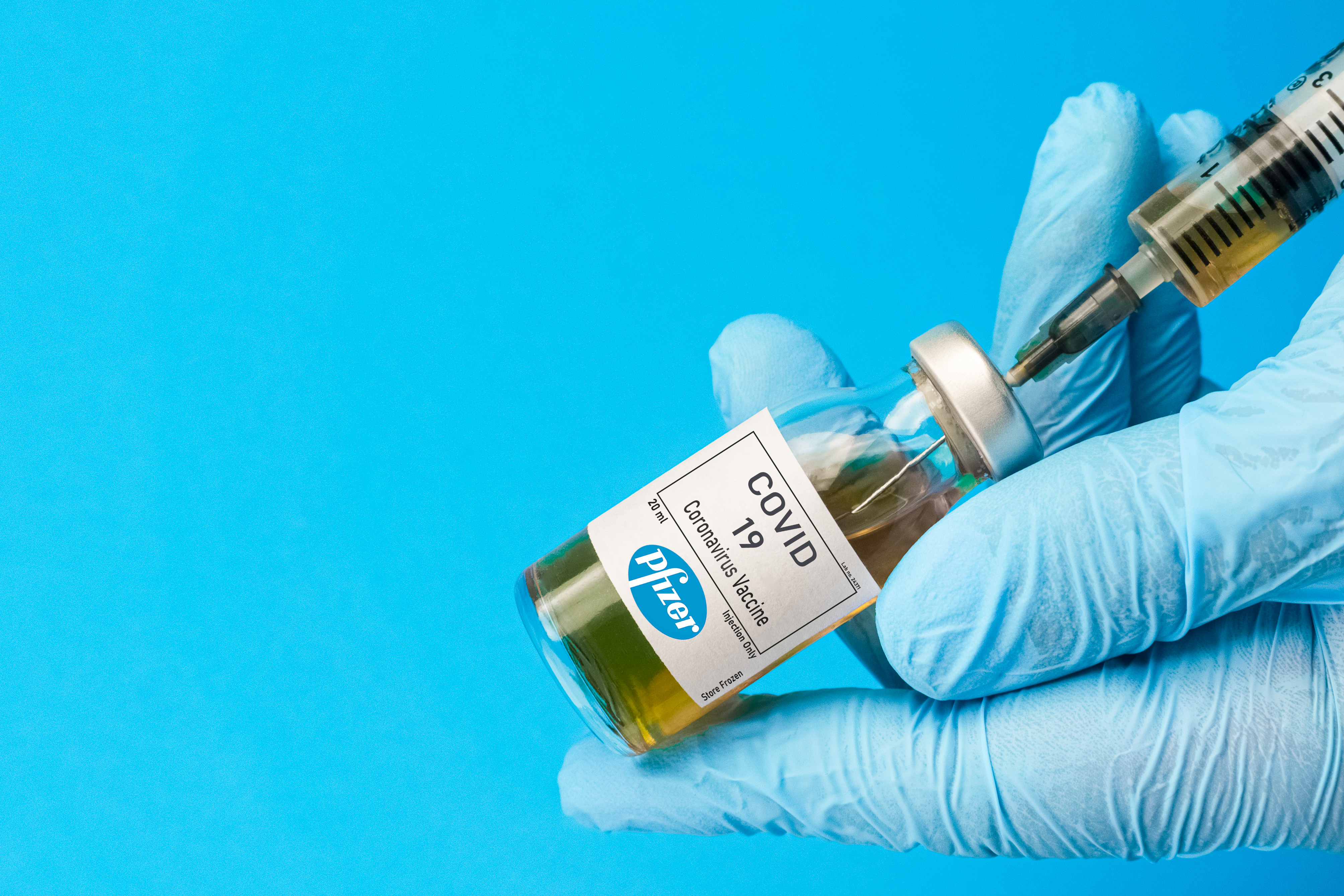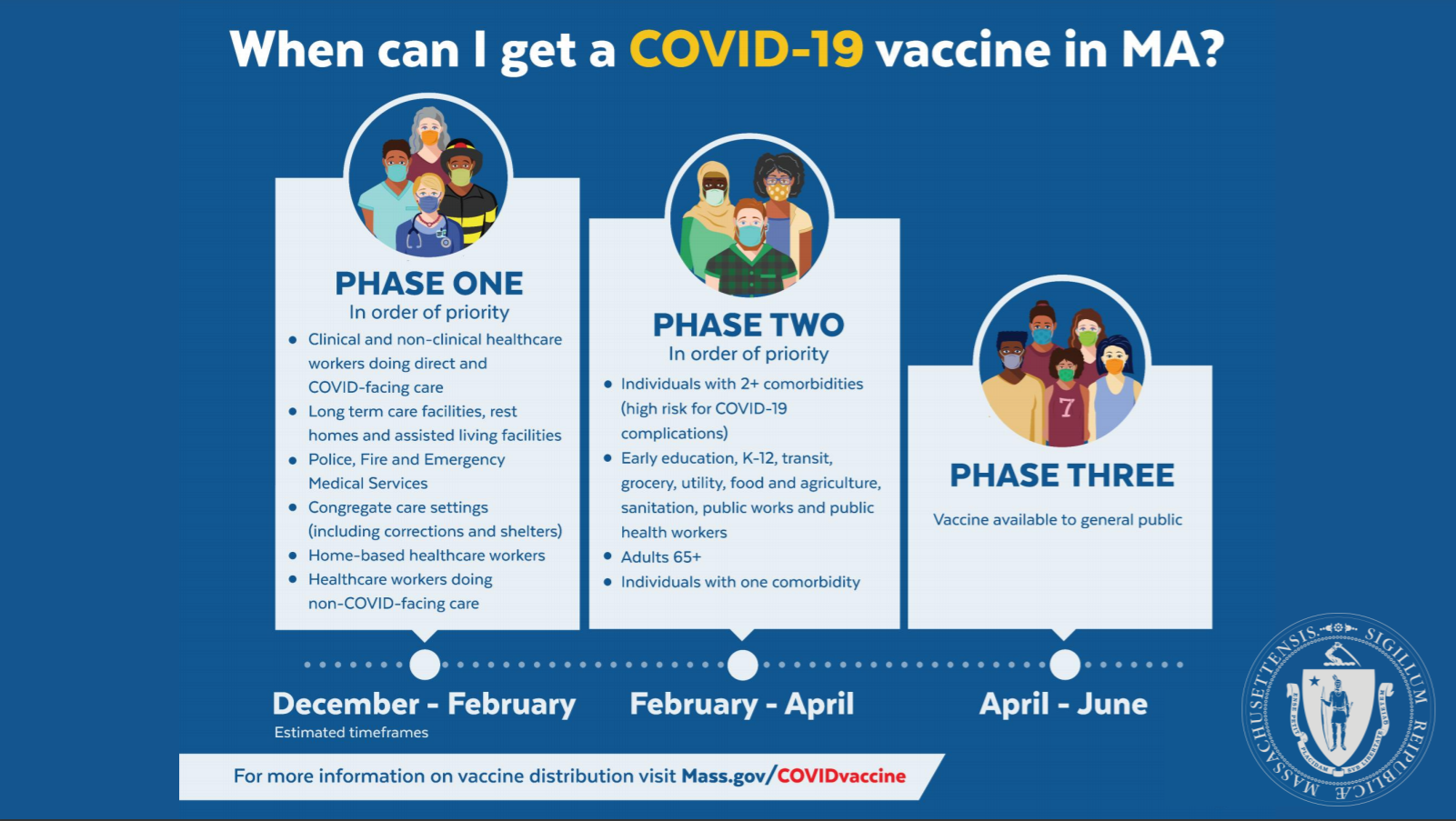As Massachusetts prepares to roll out COVID-19 vaccines to high-risk residents and workers, officials from two of the largest postal carriers in the country expressed confidence Thursday that their companies could effectively distribute doses all across the nation in a timely manner.
States are preparing to embark on one of the largest vaccination campaigns in modern history but before they can do that a large logistical puzzle must fall into place to get vaccines from manufacturers to distributors or providers. The U.S. Senate Subcommittee on Transportation and Safety held a hearing in Thursday to hear from UPS and FedEx officials about how their companies are preparing to get doses from point A to point B.
One of the more notable challenges associated with shipping the Pfizer or Moderna vaccines will be keeping them at required ultra-low temperatures --- negative 94 degrees Fahrenheit and negative four degrees Fahrenheit, respectively.
FedEx Regional President of the Americas Richard Smith said the company has made "significant investments" into their cold-chain infrastructure over the years that will allow them to effectively move the vaccine.
"At present, we have more than 90 temp-control facilities across five continents with plans to open additional facilities in the coming years," he said at the hearing. "We're also expanding our network of ultra-low temperature freezers at some of our major hubs, as demonstrated by these actions, we have planned for the various contingencies required for missions like this and are prepared to respond as needed."
UPS President of Global Healthcare Wesley Wheeler said his company has "extensive" experience handling shipments at all temperatures. The temperature of the vaccine while in transit, Wheeler said, will be maintained by its packaging, which is designed to keep the internal temperature stable for several days.
"Pfizer and McKesson have chosen appropriate, validated and environmentally friendly packaging for these two vaccines and we have extensively tested both," Wheeler said at the hearing. "UPS has also invested in dry ice manufacturing capacity for replenishment at dosing sites where required."
Officials in Massachusetts rolled out their vaccination distribution plan Wednesday, with the first doses heading to health care workers, long-term care facilities, first responders, and congregate care settings. Massachusetts is expecting 300,000 first doses of the vaccine to be delivered by the end of December, with more arriving after that.
Health and Human Services Secretary Marylou Sudders said Wednesday that the state's distribution plan focuses on hospital capacity to store and administer the Pfizer vaccine for health care workers in "COVID facing" jobs. Hospitals will either receive the vaccine directly from Pfizer, from larger hospitals with more storage capacity, or directly from the Department of Public Health, she said.
"The hospitals selected who will directly receive the first doses directly from Pfizer are those who have access to ultra-cold freezer storage, the ability to maintain the vaccines at minus 70 degrees Celsius," Sudders said Wednesday. "Smaller hospitals will receive allocations from the larger hospital systems within their health care networks or they will receive them, as I said, from the Department of Public Health as we will receive vaccines straight to our cold storage."
The rollout of a vaccine at both the national and state level comes at peak shipping season, or what Smith described as a "ship-a-thon."
FedEx operates different companies that focus on different aspects of delivery: the FedEx Ground system will handle the bulk of online retail orders while the FedEx Express network plans to focus on time-definite, critical deliveries like vaccines. Wheeler said UPS added 100,000 temporary workers to help facilitate deliveries during the peak mailing season.
And both UPS and FedEx plan to monitor the shipment of vaccines with high-tech tracking devices with built-in GPS and temperature, light exposure, and motion detecting systems. All of that data will head to each company's respective "command centers."
"So we're all watching the packages all day long," Wheeler said. "And we have very, very high confidence that we'll see all the packages running through the network."
COVID Vaccines in Mass.
The Pfizer vaccine will come in a two-milliliter vial that when diluted can provide five doses. Up to 195 of those vials will sit in "pizza trays" with dry ice at the bottom, the payload in the middle, and a tracking device on top.
"I can assure you know, that I've never seen packaging quite that complicated before," Wheeler said. "I'm pretty confident aside from real big damage, that we're going to have a lot less spoilage than you think."
As for rural locations, Smith said FedEx can deliver to every zip code in the United States.
"We do it every day, we have over 1.7 billion zip code service combinations. So with this network capacity, whether you live in Chicago, Illinois, or Murdo, South Dakota, we're able to ensure time-definite deliveries of these shipments," Wheeler said. "And we feel very confident in our capabilities in this regard. This is what our network was built to do."



